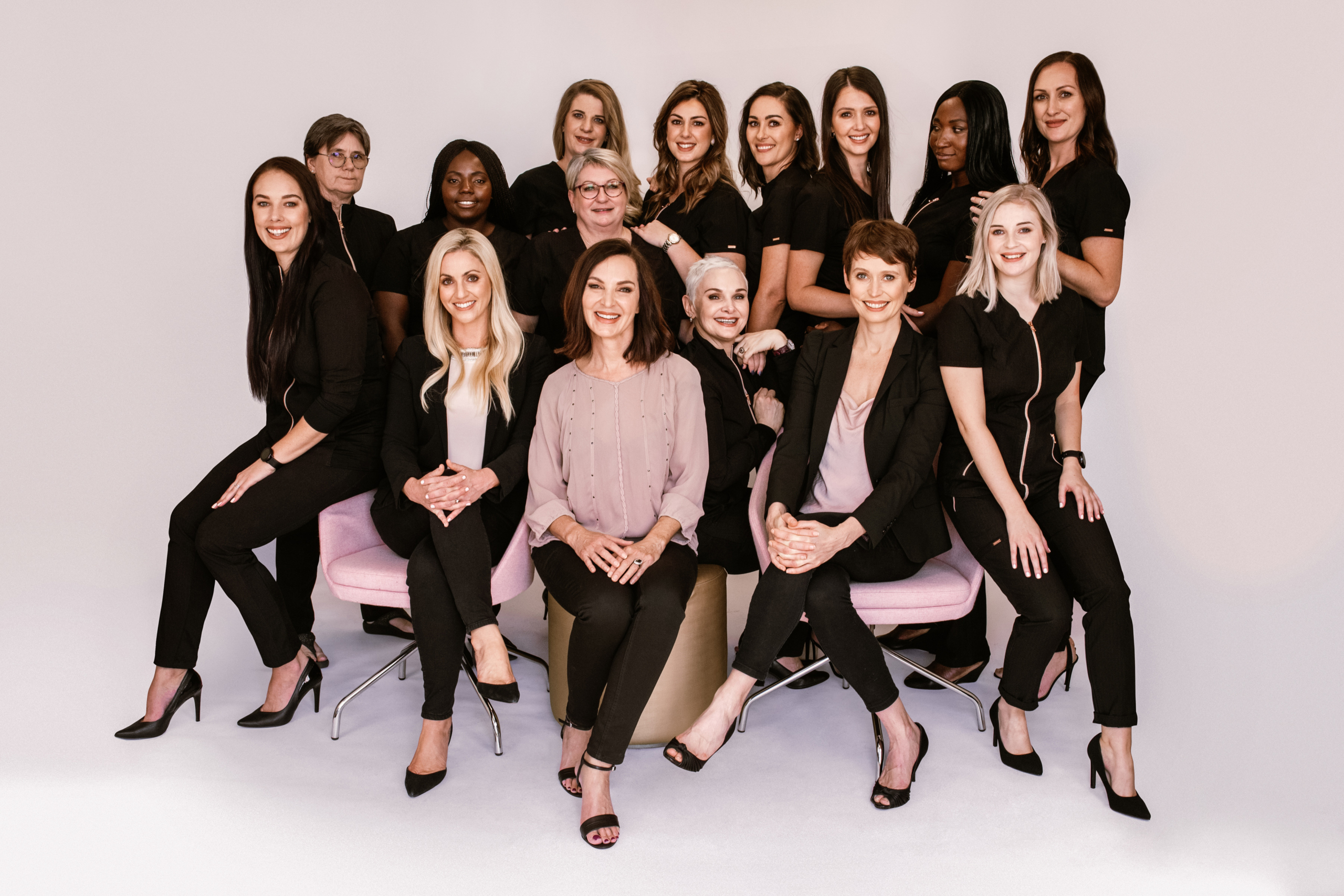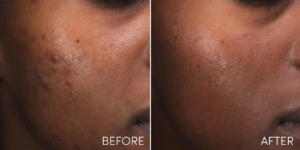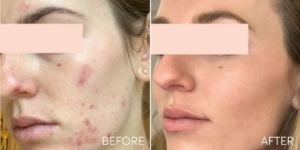Chemical Peels in South Africa
- Home
- /
- Specialist Skin Science Clinic in South Africa
- /
- Skin Treatments
- /
- Chemical Peels in South Africa
At Dr Nerina Wilkinson + Associates we believe in healthy skin and by using world-class prescription skin care we can optimise the long-term health of your skin.
Chemical peels are prescription-grade treatments that have been carefully selected for your unique skin by our experienced Skincare Specialists at Dr Nerina Wilkinson + Associates.
Our Chemical Peel Treatments are specifically designed for patients who want a more even complexion with an instant bright and healthy glow.
What is a chemical peel?
Chemical Peels improve the texture of your skin through the application of a chemical agent which promotes the growth of new skin cells.
Stimulating the regeneration of crucial tissues results in firmer, smoother skin and a fresh-faced glow.
The benefits of chemical peels also make them useful when treating specific skin concerns such as those associated with ageing, acne, sun damage, pigmentation and many more.
There are three types of chemical peels available: 1) superficial, 2) medium depth and 3) deep peels. The variation used is dependent on your unique skin concerns.
Find out more about our approach to chemical peels and book a consultation with Dr Nerina Wilkinson + Associates today.
Learn More
Frequently asked questions about chemical peels
Our approach to chemical peels
At Dr Nerina Wilkinson + Associates, our approach is bespoke and tailored to solve your specific skin concerns.
Before we schedule any procedures, patients must undergo a comprehensive examination including a VISIA Skin Analysis and Next Motion photograph. This allows us to create a personalised, results-driven, treatment plan and accurately track progress.
Dr Nerina Wilkinson has a set standard of individualised care and expertise which is reflected by the entire team. Our team of experts has a wealth of knowledge. It continuously delivers outstanding results by using state-of-the-art medical devices and products, sparing no expense to create a safe and luxurious environment where all your skincare concerns can be addressed.
Each chemical peel treatment is completely bespoke and formulated around an individual’s concerns and desired result. Contact us to book a consultation.
What are the different types of chemical peels?
For superficial chemical peels, an alpha or beta hydroxy acid agent is topically applied to visibly transform and renew the skin by lifting dead skin cells for optimal clarity and radiance. With this you can achieve substantial improvement in skin brightness and texture, leaving your skin revitalized with a youthful appearance.
For medium-depth TCA peels, we use trichloroacetic acid (TCA) to penetrate deeper into the skin layers as far as the papillary dermis. This process stimulates a more powerful regeneration process of the skin to stimulate collagen, elastin and hyaluronic acid production. The epidermis is partially removed over the next few days following the peel for a visible skin transformation.
A deep Phenol peel penetrates much deeper to the reticular dermis and the entire epidermis is removed during this procedure for a powerful exfoliation resulting in optimal cell renewal.
Who is the ideal candidate for chemical peels?
A chemical peel can benefit prospective patients who are struggling with a range of skin concerns including signs of ageing, dull and uneven skin tone, damaged skin, acne and acne scarring, and pigmentation.
Chemical peels help stimulate cell regeneration and resurfacing of the skin to reveal a healthy and smooth complexion.
Always start with a professional consultation with qualified and experienced specialists for an in-depth analysis of your facial features and to reach a good understanding of your skincare concerns and goals as well as the most suitable treatments to help you achieve these goals.
Our unique and comprehensive VISIA Skin Analysis is available for you to discuss and analyse your concerns and goals and for our team of specialists to provide bespoke advice and a customised treatment plan.
Schedule your VISIA Skin Analysis today!
What areas can be treated with chemical peels?
Chemical peels are typically applied to the face, but can also be used to treat skin concerns on the neck, chest, back, and hands.
How is a chemical peel performed?
Chemical peels are minor procedures that are usually performed in three steps. First, the skin is cleansed and prepared for the peel. Next, the chemical is applied to the skin. The duration of application and type of chemical applied are the factors that determine the depth of the peel and will be tailored to your specific treatment goals. Some tingling and discomfort are expected during this step for deeper peels. Finally, your skincare specialist will neutralise the chemical and provide post-treatment skincare and aftercare advice.
What are the benefits of a chemical peel?
Patients with imperfections on their face, neck or hands can benefit greatly from this procedure, specifically those with
- Uneven skin texture
- Uneven skin tone (pigmentation)
- Sun damage
- Large pores
- Fine lines and wrinkles
- Skin brightening
- Acne and Acne scars
How long does it take to see results from a chemical peel?
When undergoing a chemical peel treatment results depend on the type of peel and can be visible within a few days or it can take up to 2 – 4 weeks to see results. Your skincare specialist will be able to advise you based on your treatment.
What are the results I should expect from chemical peels?
Regular chemical peel treatments will maintain skin health, improve skin complexion and promote nourished skin with an all-year-round glow.
How many chemical peel treatments are required to see results?
Seeing that there are such a wide variety of chemical peels available for a variety of skincare concerns, the type and number of chemical peel treatment(s) required before you see the results you desire will also vary greatly. You will however start seeing results after your very first chemical peel treatment!
You will receive a detailed skincare plan with the recommended treatments after your first consultation.
How long do results from chemical peels last?
Results from chemical peels last indefinitely with regular maintenance treatments.
How long does it take to perform a chemical peel treatment?
Treatment times can vary between 30 minutes and 60 minutes.
How long is the recovery period for chemical peels?
Superficial chemical peels are quick, no-downtime procedures. You could expect a mild dry feeling in the skin for 1 – 2 days post-treatment.
Medium-depth chemical peels are slightly more invasive. You may experience a heated sensation and the skin may appear pink for 2 days post-treatment. Tightness and dryness will usually set in from day 2 or 3. The skin can appear darker in certain areas but will become more even once flaking begins. The skin will also look older in appearance just before flaking occurs. Flaking will usually begin from day 3 or 4 and can continue for up to 1 week after your treatment.
Deep chemical peels require downtime. The skin will appear red and swollen post-treatment and can continue for up to a week. The skin will feel sensitive for up to 1-week post-treatment. Peeling usually starts from day 3 or 4 and will be deep, and the skin underneath will appear pink for several weeks post-treatment. It is advisable to take a week off from work to recover from this treatment.
Are chemical peels painful?
Discomfort with superficial peels is minimal. An itchy, prickly, heated sensation can be experienced while the chemical takes effect on the skin.
Mild to medium discomfort can be experienced with medium-depth peels. One can expect a hot, burning sensation. TCA peels are layer-dependent; the more layers of peel applied to the skin, the deeper the peel will be.
With deep peels one can expect severe discomfort, it is therefore recommended that the patient be sedated before having this treatment. Deep peels are also only performed by a Doctor.
What type of anaesthesia is used during chemical peels?
Our chemical peel treatments do not require patients to receive an anaesthetic. For deep chemical peels performed by a Doctor, you may be sedated for greater comfort.
What does a chemical peel cost?
After you consult with the Skincare Specialist, you will be quoted according to the size of the area being treated and the type of chemical peels required to treat your concerns.
Mesoestetic Pro Peels: R 1 650 – R 2 750
Mesoestetic MD Peels: R 1 950 – R 3 050
The cost includes a bespoke aftercare pack consisting of relevant product minis to aid the recovery of your skin post-treatment.
Please contact us to ask any questions you may have regarding chemical peel treatments.
Are there alternative treatments for chemical peels?
There are alternative treatments that we utilise to assist patients who are struggling from a range of skin concerns including signs of ageing, dull and uneven skin tone, damaged skin, acne and acne scarring, and pigmentation.
Periocular Brightening Peel is a bespoke signature treatment specifically designed for clients who want firmer, brighter and more evenly toned skin around the eye area.
Depigmentation (Cosmelan/Dermamelan) is a clinical treatment for depigmentation that effectively removes and lightens dark patches, resulting in brighter, smoother and more even complexion.
CO2RE® Fractional Laser Resurfacing involves the use of a surgical-grade Carbon Dioxide laser that speeds up your skin’s healing process by removing old and tired cells, and stimulating the production of new skin cells and collagen.
Are chemical peels safe?
When performed by a qualified Skincare Specialist, chemical peels are considered very safe. Chemical peels can be safely performed on all Fitzpatrick skin types.
What are the possible risks and complications associated with chemical peels?
Chemical Peels are low to no-risk treatments. It is, however, important to make your Skincare Specialist aware of any allergies to help avoid possible reactions.
Chemical peels: Before and After
We are passionate about educating our clients on safe, results-driven treatments and we, therefore, design each client’s Skincare Treatment Plan individually to deliver optimal results. To achieve this, we start with a computerised VISIA Skin Care Analysis that objectively measures and maps your skin followed by a detailed consultation with your Skincare Specialist during which specific concerns are highlighted and discussed.
What to do before a chemical peel treatment
1. Avoid any strong at-home facial treatments and/or exfoliation treatments the week prior to your appointment.
2. Avoid sun exposure (including tanning) for five days prior to your treatment.
3. Know the skincare products you are using at home, and bring a list, as having these details will assist your Skincare Specialist to make suitable product recommendations.
4. Advise your Skincare Specialist regarding any medications, medical conditions, and/or past skin conditions; even over-the-counter medications can affect your skin, so it is good for us to know what may be contributing to your concerns as well as how your skin reacts to certain products.
5. Should you be preparing your skin for a big event and you have never had a skin care treatment before and therefore don’t know how your skin will respond, it is recommended that you schedule an appointment six weeks before your big even with a follow-up appointment closer to the event date. This way you have time to address any negative skin reactions and get the maximum results from your treatment(s).
6. Be prepared to discuss your skin concerns and goals. Your Skincare Specialist is a licensed expert who will provide you with a detailed plan to best achieve your specific goals.
7. We advise against any aesthetic procedures (including Botulinum Toxin, Facial Fillers and Threads) 2 weeks prior to and 2 weeks after any minimally invasive skin care treatment.
On the day: chemical peel treatment
Should this be your first treatment at the Skin Clinic, you will be required to complete a short medical questionnaire to help guide your Skincare Specialist in selecting the most suitable treatment protocol for you. Your Skincare Specialist will require access to your face, neck and shoulders, therefore requiring you to get changed into a robe prior to the treatment.
The treatment will include:
- Cleansing
- Chemical Peel suitable for your skin concern
- Skin Tonic & SPF application
After chemical peels
Slight peeling, dryness and skin sensitivity have been reported in the few days following a Chemical Peel. You will however receive post-treatment home care and instructions on how to apply these specific products in the days following your peel.
What aftercare advice and products should I follow/use?
Your Skincare Specialist will advise on a suitable skincare regime to support results:
- An SPF 50 should be applied daily
- Avoid facial waxing for 7 days post-treatment
- Limit sun exposure for 2 – 7 days post-treatment
- Avoid exercise for 24 hours post-treatment
Where are chemical peel treatments performed in Cape Town?
Dr. Nerina Wilkinson + Associates is a private, high-end, luxurious clinic located in the prestigious V&A Waterfront in Cape Town. Dr. Wilkinson founded the House of Aesthetic Couture and Skin Science. Your treatment will be performed at Dr. Wilkinson’s clinic.
Treatments
Similar To Chemical Peels
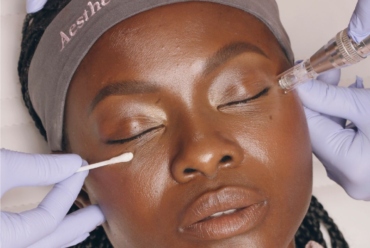
Periocular Brightening Peel
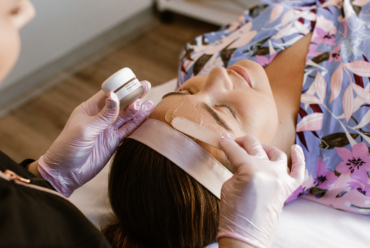
Depigmentation (Cosmelan/Dermamelan)
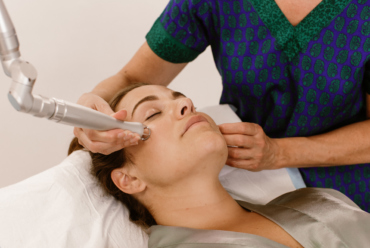
CO2RE® Fractional Laser Resurfacing
Meet
The Skin Science Team
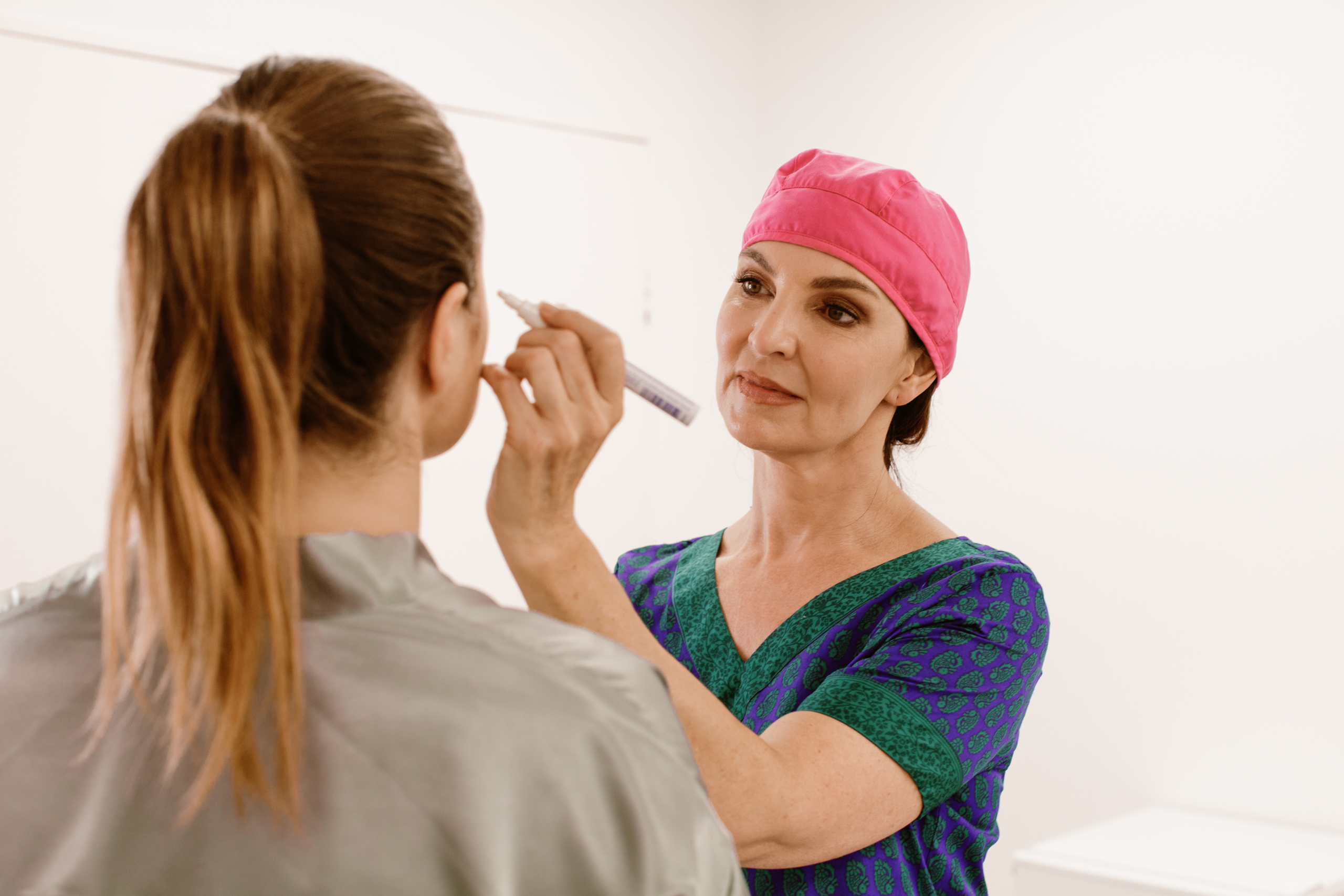
About Dr Nerina Wilkinson + Associates
We pride ourselves on affording our patients the best service through their journey with us. Whether you are having a skin treatment with one of our skincare experts, aesthetic medical treatments or cosmetic surgery, the team at Dr Nerina Wilkinson and Associates will be there for you, every step of the way.
Skin Science & Aesthetic Couture
As an all-female team, we understand the importance of naturally beautiful looking skin. Known as leaders in the skincare industry, we have pioneered industry-changing rejuvenation techniques and signature procedures such as 3D Microneedling™, Forma Hydralyft™, and Glow Getter™.
